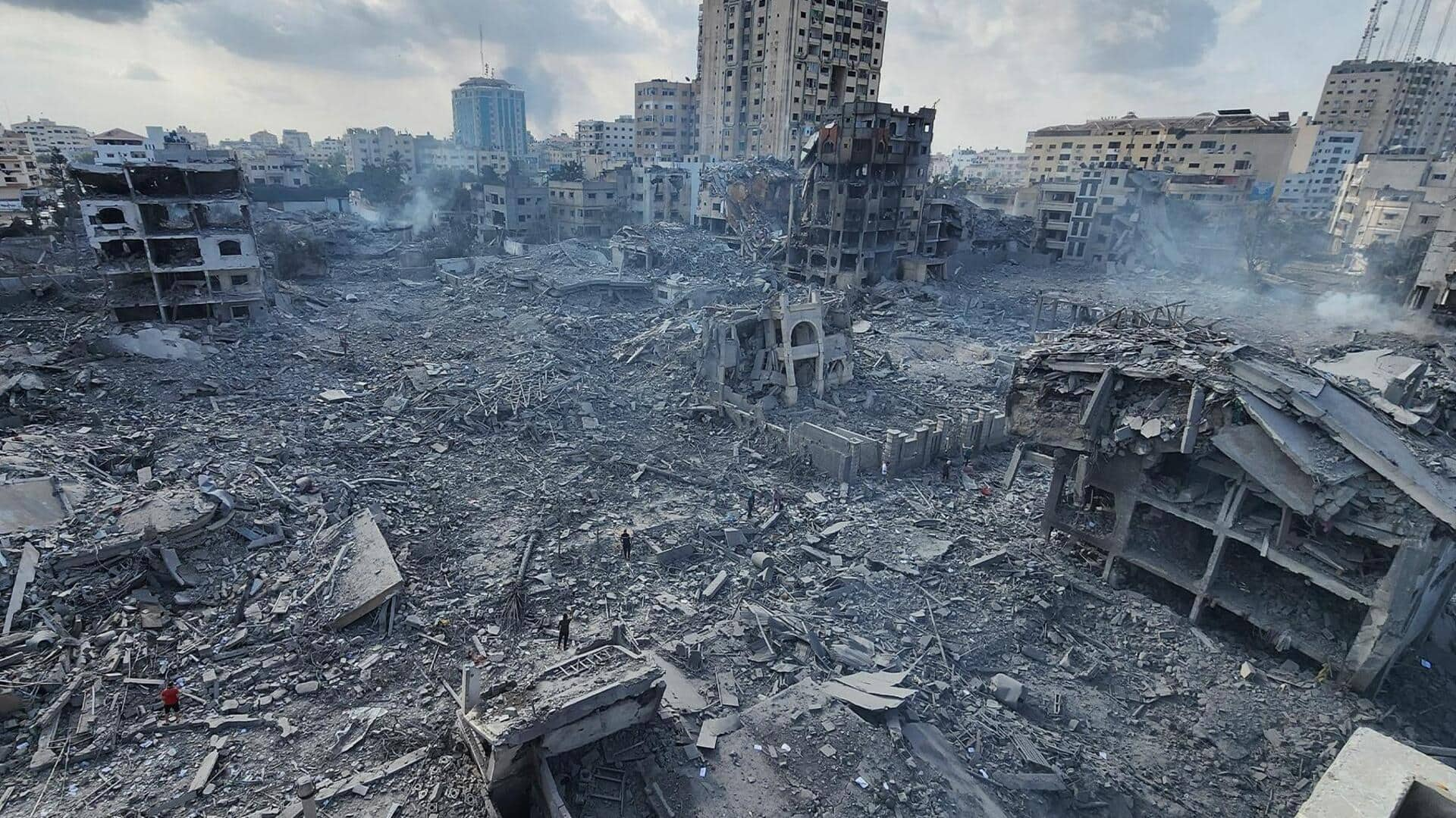
Rebuilding Gaza's 'human-made abyss' will cost over $70B, says UN
What's the story
The United Nations has estimated that rebuilding Gaza, devastated by the ongoing conflict between Israel and Hamas, will cost at least $70 billion. The UN's Trade and Development agency, UNCTAD, released a report stating that Israel's military operations have "significantly undermined every pillar of survival" in Gaza. The population of 2.3 million people is now facing "extreme, multidimensional impoverishment," according to the report.
Economic impact
Gaza's economy contracts, West Bank faces violence
The report highlights that Gaza's economy has contracted by 87% between 2023 and 2024. The gross domestic product (GDP) per capita is now a mere $161, one of the lowest in the world. Meanwhile, "violence, accelerated settlement expansion and restrictions on worker mobility" have devastated the economy in the West Bank.
Fiscal challenges
Palestinian government struggles to maintain services
The report also notes that "plummeting revenues and the withholding of fiscal transfers by the Israeli government have severely constrained the Palestinian government's ability to maintain essential public services and invest in recovery." "This comes at a time when massive spending is needed to rebuild infrastructure and address environmental and socioeconomic crises," it continues. According to the report, this is the steepest economic contraction on record, and it has erased decades of progress across the West Bank and Gaza.
Ongoing conflict
Ceasefire in place, but challenges remain
A US-brokered ceasefire between Israel and Hamas has been in effect since October after two years of hostilities. However, the situation remains fragile with at least 342 Palestinians killed by Israeli fire since the start of the truce. In return, Israel has reported three soldier fatalities due to militant gunfire during this period.
Humanitarian crisis
Hostage exchange and food insecurity in Gaza
Hamas and Islamic Jihad, a smaller allied militant faction, are preparing to hand over another Israeli hostage's remains as per the ceasefire deal. The World Food Programme reports that most households in Gaza can't afford basic food items, with diets consisting mainly of cereals and pulses, and moderate amounts of dairy and oil, with very limited meat, vegetables and fruit. Cooking gas scarcity is even forcing families to burn plastic for cooking.
Reconstruction efforts
UN security council backs reconstruction plan
Since the ceasefire began, Hamas has released all living hostages and returned most deceased hostages' remains. In return, Israel has freed nearly 2,000 prisoners and returned hundreds of deceased Palestinians. The UN Security Council has backed Donald Trump's plan for Gaza's reconstruction, which includes an interim technocratic Palestinian government under international oversight.